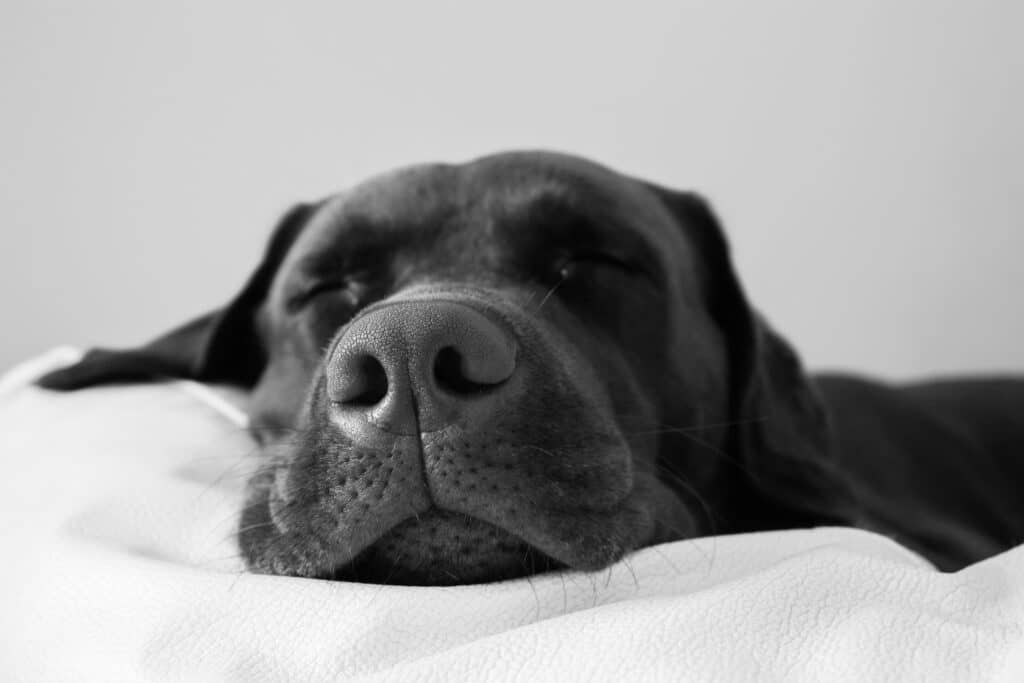“This post contains affiliate links, and I will be compensated if you make a purchase after clicking on my links.”
It turns out we, hoomans, aren’t the only one lying in our beds at night thinking about our problems.
Much like us, our furry friends are also kept awake at night by their worries, a Hungarian study published by The Royal Society scientific journal has shown.
The researchers studied the effect of positive and negative social experiences on a dog’s sleep pattern.
In order to do this, the researchers conducted the study with 16 adult dogs, nine males and seven females, across nine different breeds. There was no specific requirements for the dogs that took part in the study, except that they had to be older than 1 year.
The dogs’ owners were asked to fill out a personality questionnaire that had questions measuring their dogs five personality traits: extraversion, openness, agreeableness, and conscientiousness.
Afterwards, the dogs were exposed to “positive” experiences and “negative” experiences.

The researchers found that when exposed to positive experiences before sleep, like playing with their owners, dogs had a deeper and more consistent sleep.
Meanwhile, when exposed to negative experiences, like being left by their owner and being approached by a stranger, the dogs had trouble staying asleep and stayed in the REM (rapid eye movement) stage of sleep.
Interestingly, the results showed that dogs who had negative experiences before sleeping, were quicker to fall asleep than the dogs that had positive social experiences, which the researchers say “have been implicated in human studies as well”.
Furthermore, the researchers found, as one would expect, that dogs that were more extroverted and playful were less likely to be stressed that their introverted counterparts when approached by a stranger.
The researchers conclude that socially positive and negative emotional experiences influences the way our furry friends sleep.
“Sleep per se has been suggested as a good welfare indicator in dogs, and our finding that short emotional treatments influence sleep macrostructure also suggest that sleep research could be usefully implemented in the field of canine well-being,” the researchers wrote.



















Marie Kooiman
Feb 16, 2024 at 4:39 pm
Our pup has separation anxiety and for the first four years he got car sick so we had to leave him home when we traveled and have someone care for him. I wonder if this is why he has nightmares? He gets a good run every evening without fail but still has nightmares in his sleep. He wines and his legs twitch while he is sleeping. Maybe this is just a dream of the walk he just had before bed?
He has since grown out of the car sickness so loves to travel with us now. Our neighbors tell us when he is left at home alone at any time he howls so I know that he is still ancious when left alone even for short periods of time.